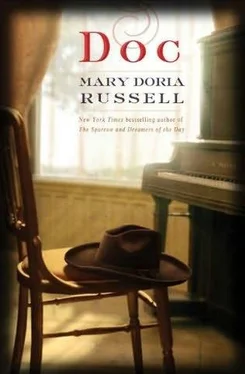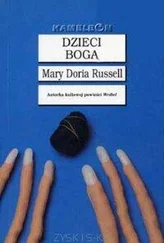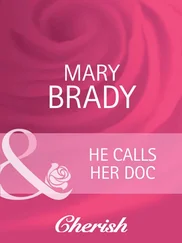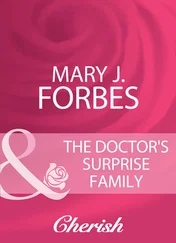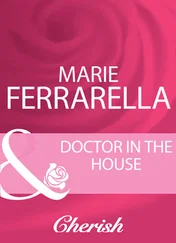Please thank the children for their prayers and tell them I am not dead yet , he wrote in a letter to Alex von Angensperg after a bout of pneumonia in December of 1879. That said, I appear to be decomposing considerably ahead of schedule. Kate finds me poor company .
And so did everyone else.
When he was sober, intensifying pain left him sleepless and short-tempered, so he drank to get relief, and it took a lot of bourbon to do the job. When drunk, he found it difficult to govern his sly, teasing tongue. Either way—sober and snappish or drunk and droll—he was accumulating enemies. Warned, he was defiant. Kate began to feel that he was courting death and left him twice, but came back again when he asked her to join him in Tombstone.
By then liquor had begun to erode the quick wit and thoughtful intelligence that Morgan had liked so much in Doc. He, too, was worried by the chances Doc took, but no matter how difficult Doc became, Morg stuck by him. “He is a brother to me,” Morg always said. That loyalty was mutual. When the Clanton and McLaury brothers faced off against the Earps at the O.K. Corral in October of 1881, John Henry Holliday stood at Morgan’s side.
In Kate’s opinion, the men involved in that shoot-out were spoiling for a fight and they got what they all wanted. Her account of the showdown in Tombstone is remarkable for its focus on the aftermath, when Doc retreated to their hotel room, sat on the side of their bed, and wept. He seemed stunned that what started as a misdemeanor arrest had gone so wrong, so quickly. Three men dead; Morgan and Virgil Earp badly wounded. “Doc was all broken up,” Kate recalled, “and he kept saying, ‘This is awful. This is just awful.’ ” Kate herself was worried that Wyatt and Doc would be lynched by Ike Clanton’s friends.
Morg and Virgil recovered. Doc and the Earps were exonerated of wrongdoing by a judge, but Kate was right. Ike’s friends weren’t the kind to forgive and forget. On the night of March 18, 1882, Morgan Earp was shot in the back while playing billiards: retaliation for the deaths of the three men killed during the gunfight at the O.K. Corral.
When Morgan died in Wyatt’s arms, no one—not even Virgil or James—understood the depth of Wyatt’s loss or shared his grief and rage and guilt as fully as Doc Holliday. It was Doc who bought the blue suit that Morgan was buried in. And when Wyatt Earp left Tombstone to avenge his brother’s murder, Doc Holliday was right beside him.
From that day forward, legend would link their names as halves of an iconic frontier friendship, but Kate knew the truth. Without Morgan to draw them together, Wyatt and Doc had little in common apart from the desire to see Morg’s killers dead in the dirt. When that was accomplished, Wyatt and Doc split up and soon lost contact.
Kate was glad of that at first. She had never liked Wyatt, but with Morgan gone and the Earps scattered, the full burden of Doc’s care soon settled onto her own small shoulders. That load was sometimes more than she could bear.
Doc understood why she fled and never held it against her. Kate is gone again and it is my fault , he wrote to Alex von Angensperg in a copperplate hand loosened by drink. She is weary of life with a man who has been dying for years and cannot seem to finish the job. The strain of a long illness will exhaust the most compassionate .
Despite Kate’s occasional interference, John Henry had continued to correspond with his cousins, though his notes became brief and infrequent as his condition deteriorated. When Martha Anne wrote of her decision to enter the Catholic Order of the Sisters of Mercy, it made no great difference between them. Distance and time had worked their changes. Their childhood romance had long since mellowed into cousinly caring. John Henry’s last letter to Sister Mary Melanie was dated May 5, 1887, and postmarked in Leadville, Colorado. Thank you for your prayers, dear heart. I have nothing happy to report. I will be moving to Glenwood Springs when I am well enough to stand the journey. Mountain air may help .
If anything, Glenwood’s thin air and sulfur springs hastened his decline. In September, Doc wrote to Kate, asking her to join him. She could tell from his handwriting how weak he was and came as quickly as she could. He was waiting on a bench at the stagecoach depot the afternoon she was due to arrive. Kate walked right past him.
He called her name. The effort set off a coughing fit more recognizable than the man himself. Eyes hollow, cheeks sunken, John Henry Holliday was a fragile old man at thirty-six: bent and emaciated, his fine ash-blond hair now thinned and silver-white.
He had beaten the odds before and believed that, with Kate’s care, he could do it again. But there are games that cannot be won, no matter how cleverly they are played. Consumed by fever, weakened by pneumonia, undermined by alcohol and laudanum, exhausted by the violent cough that shook him day and night, John Henry Holliday died, like his mother before him, too young, after a terrible struggle with tuberculosis.
Kate was at his side.
He had wished to leave some sort of legacy but he was penniless at the end. Kate used her own savings to pay his bill at the Glenwood Springs Hotel. In memory of Doc’s ruinous, reflexive openhandedness, she even gave small cash gifts to members of the hotel staff who had been especially kind to them during the last days of Doc’s life.
The Deadly Dentist’s malign reputation had grown larger as the man himself dwindled, but people in Glenwood Springs would remember Doc Holliday with respect. As the hotel bellhop told a reporter, “We all liked him. He bore his illness with fortitude, and he was grateful for the slightest kindness. Doc was a very fine gentleman, and he was always generous when he tipped.”
It was his hands that Kate would remember.
After that autumn back in Dodge, Kate was always aware of how loose Doc’s grip on life was, of how easily life could be pulled away from that frail, fierce, proud man. For years, she had feared that one day he might simply let go of life, or fling it away in a moment of disgust or despair, but to the very end, those skillful, talented, beautiful hands remained the strongest part of him. It was only as he lay dying that she understood just how much John Henry Holliday had wanted to live.
After Kate’s own death in 1940, scraps of notes were found in her belongings. Several appeared to be part of what might have become a longer account of her life with Doc. He was considered a handsome man , she wrote. He was a gentleman in manners to the Ladies and everyone. He was a neat dresser and saw to it that I was dressed as nicely as himself . On another page she wrote, Being quiet, he never hunted trouble. If he was crowded he knew how to take care of himself. He was not a Drunkard , she insisted. He always kept a bottle near, but when he needed something for his Pain, he would only take a small drink .
Other notes were more philosophical. Doc Holliday learned to live without fear the year he met me, but Hope tormented him . And another read, Doc was the only American I ever met who was better educated than me . There was also the start of a letter to Sophie Walton, an elderly woman herself by then, still living with members of the Holliday family. Kate wanted to tell her that Doc always drank a toast “To Sophie” whenever he won big; the letter was never sent, probably because Kate didn’t know Sophie’s address.
So there is reason to believe that Kate was planning to write a memoir, though she was nearing ninety when she started and didn’t get far. Perhaps she simply didn’t have time to see the project through. Perhaps she found it too difficult to write in English, never her strongest language. Magyar and German were both wrong for the task. Her French and Latin were good; either might have fit her story.
Читать дальше
